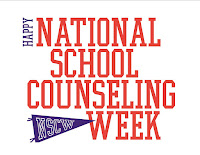by Anne Lodge
I recently had the opportunity to attend a webinar about a relatively new social media tool, ZeeMee, focused specifically on the college admission process. ZeeMee was started with the mission of “bringing stories to life and connecting people with life-changing opportunities”. The company strongly believes that everyone has value and potential. Recognizing that much of the college application process is two-dimensional, ZeeMee aims to empower students to recognize how powerful their personal narrative can be and to bring their story to life. In essence, they are providing students with a platform for showcasing more of themselves in the application process.
In a world where generation Z has always had the internet and every student has a digital footprint, ZeeMee is a free service that allows students to positively craft their digital profile that they can then share with admission representatives during the college application process. Reports show that more than 50% of admission officers have looked up applicants on Google or similar search engines and that up to 40% of admission officers view students’ online profiles. ZeeMee pages can help students create a positive digital portfolio. In fact, in the short time that ZeeMee has been around, there are already over 200 colleges who have partnered with ZeeMee and have included space in their applications for students to share their ZeeMee page. (See the full list here.) There is even a place on the Common Application for students to include their ZeeMee url to share with colleges. Feedback from colleges who have partnered with ZeeMee have shared that a page can only help an applicant, never hurt them, and that it helps establish a real, human connection with a paper application.
ZeeMee is comprised of three major parts: a “Meet Me Video”, a “My Story” section, and a “My Activities” section. The “Meet Me Video” has generated the most positive feedback from colleges and is the most popular part of the tool. The video is short: thirty to ninety seconds long, but it offers students an opportunity to showcase themselves in a way that they are unable to do on paper. It could be a video interview, a highlight of sports, music, or a performance, a video recommendation from a teacher, an art slideshow, a monologue of college and life goals, or literally anything else that represents who the student is. The “My Story” section of the site allows students to include text, pictures, and video introducing themselves and highlighting more about them personally. The “My Activities” section also allows for students to profile the types of things in which they are involved through both text, pictures, and video. While this section does not need to highlight all that a student has done, aiming to include three to five activities that tell the whole story of their involvement is a good goal. The ZeeMee website has instructional videos, YouTube tips, and a lot of information to help students navigate the process.
While creating a ZeeMee page could be seen as just one more thing to do in the already time consuming college application process, the feedback is really positive. By no means should a student feel as though they must create a ZeeMee page when they are applying to colleges, but for those who feel energized to share more information with schools and highlight who they are in a way that a paper application and materials can not, ZeeMee seems to be a great platform in which to do so. Learn more or register for a free account here: www.zeemee.com.



